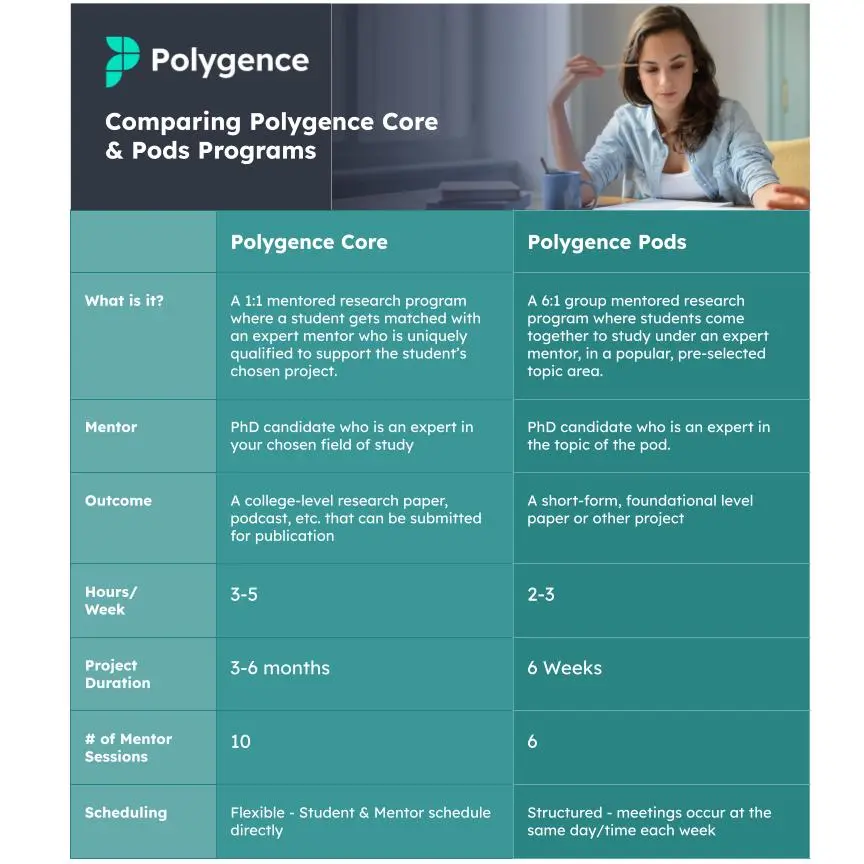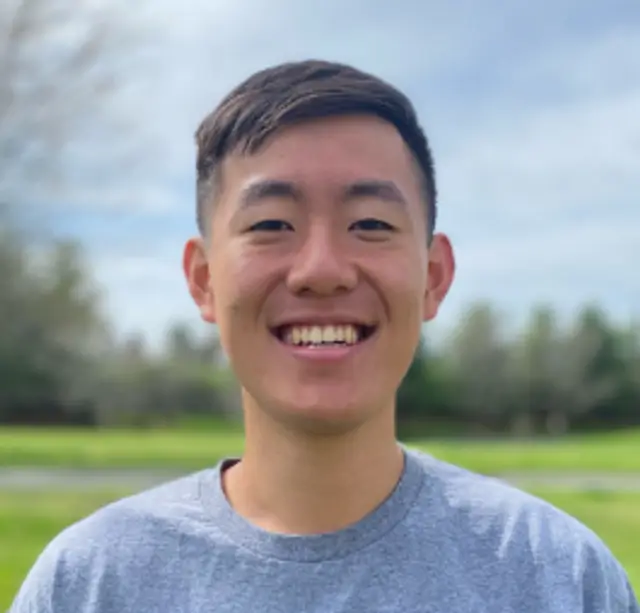10 Music Passion Project and Research Ideas For High School Students
8 minute read
Music is a universal language that transcends borders and time periods, holding a profound significance in our society. Whether it's rhythmic beats that get people dancing, meaningful lyrics that convey complex emotions, or intricate melodies that stir the soul, music has the power to evoke feelings and even inspire action.
As a result, music is often offered in many high schools as classes that students can take, like choir, band, and orchestra. However, if you feel like your passion for music goes beyond just the time that you dedicate to school or playing one particular instrument, then you might want to consider doing a music passion project.
How to Find Your Music Passion Project Focus
Choosing a music passion project can be challenging, but distinguishing between two main project types can help simplify the process. The first type involves learning how to produce music, while the second is conducting research into the science or history of music. Both can be fulfilling passion project ideas for high school students; however, research projects typically require more reading and writing, whereas creating music involves hands-on experimentation with software and/or instruments. Consider how you’d prefer to spend your time and what you’d enjoy most!
For high school students starting to deepen their interest in music, Polygence Pods offers a unique opportunity to pursue a guided music project in a small group of like-minded peers. Music research can various directions, from artistic exploration that informs your creative practice to more traditional scientific or historical research papers. With Pods, you, your cohort, and your mentor will explore a music research topic in a flexible environment that balances collaboration with individual creativity. Meeting weekly over video conference for five to six weeks, Pods are designed as the perfect starting point for students interested in music research.
For more ideas, check out our fine arts projects, arts and humanities projects, and math projects for high school students.
Do your own research through Polygence!
Polygence pairs you with an expert mentor in your area of passion. Together, you work to create a high quality research project that is uniquely your own.
10 Music Passion Project and Research Ideas
1. Making music with Neural Networks
Aim: Learning how to use machine learning tools to build music composition tools, and then using them to write music.
Project description:
Are you interested in the intersection of music composition and machine learning? With this project, you’ll learn how to build perceptrons and neural architectures tailored for use in music projects. After constructing the tools, you’ll get to use them to complete a short music composition with the guidance of an expert mentor.
Concepts and skills: Music technology, music composition
Idea by music composition and research mentor Tom
2. Can music help your brain heal?
Aim: Exploring whether music can act as an effective therapy following traumatic brain injury (TBI)
Project description:
This project will delve into the cognitive, behavioral, and functional effects of music therapy following TBI. What happens to brain activity as examined through fMRI with implementation of music therapy? Are there changes in neurotransmitter release? Is there a measurable behavioral and cognitive effect?
Concepts and skills: Neurotransmitters, traumatic brain injury, therapy
Idea by music research mentor Samantha
3. Community engaged music activity
Aim: Organizing and planning a music event and learning about the nuances of event planning
Project description:
Have you ever dreamed of putting together a concert for your community, school, or family gathering? For this project, come up with an interesting idea, write a proposal letter to potential sponsors, network and find collaborators, arrange and oversee rehearsals, and put a wonderful show together! You should also consider how you’d like to advertise the event, whether it’s a show or more of a competition, and how to set up the proper sound system for the event.
Concepts and skills: Event planning, community service, marketing, leadership and delegation
Idea by music research mentor Parisa
4. Why does Bach sound like Bach?
Aim: Learning about counterpoint and understand how it’s used in music
Project description:
We revere master composers like Bach, Vivaldi, and Mozart but their monumental works were not just a product of genius inspiration. Rather, a lost tradition of counterpoint pedagogy deserves a good deal of credit for giving classical music its characteristic sound and polish. In this project, dive into counterpoint and develop an understanding of how it works and how it’s been applied to classical works.
Concepts and skills: Counterpoint, music composition
Idea by music research mentor Lucien
Do you hear the people sing?
Interested in Music? We'll match you with an expert mentor who will help you explore your next project.
5. Music psychology
Aim: Exploring a specific topic about how the brain engages with music
Project description:
How does the human brain process music? How does music engage our perception and what does it do to us? If you're interested in the intersection of music and perception, a research project on the topic of music cognition or music psychology would be perfect for you. In such a project, you would narrow down on a particular music topic or question (ex. What is perfect pitch? What kinds of methods do music psychologists use? How does the brain handle rhythm?) and work to create a research paper or creative project around this line of inquiry.
Concepts and skills: Neuroscience, music psychology, writing a research paper
Idea by music research mentor Natalie
6. Music listening experiment
Aim: Conducting a study to learn about why people like the music that they do
Project description:
Music listening is personal - you may like music that others don't, and that's ok! It's all a part of the subjective experience of appreciating music. What we still don't know a lot about is why people enjoy certain types of music. Is it shaped by what we listened to growing up, by our friends, or by our experiences playing and/or dancing to music? Create a study that asks others what they like or dislike about specific types of music and why, and summarize your takeaways.
Concepts and skills: Survey design and analysis, music appreciation
Idea by music research mentor Samantha
7. Scoring a scene
Aim: Create your own musical score from scratch and learn how music impacts film
Project description:
Have you ever been amazed by soundtracks from films like Interstellar and The Godfather? This is your opportunity to create your own score for a sample scene from a film. Come up with the initial idea for what happens visually in the scene, and then brainstorm how you want the viewer to feel through the score. Then, begin to arrange your musical score! For inspiration, you can research several movies and their music to understand how the music elevates the viewing experience.
Concepts and skills: Musical composition, film scores, creativity
Idea by music research mentor Cody
8. Mini-musical
Aim: Writing your own short musical
Project description:
Write a short dramatic piece featuring original characters, music, and lyrics, about anything ranging from, say, a dinner date gone wrong to an epic period piece about the history of the Hotel St. George in Brooklyn Heights. Whatever you're passionate about, let's musicalize it!
Concepts and skills: Lyric writing, historical research, musical composition
Idea by music research mentor Farrah
9. Obscure genre research
Aim: Finding a niche music genre and understanding what makes it unique
Project description:
Everyone is familiar with genres like pop, country, rap, and EDM, but what other niche genres are there that people haven’t explored yet? Research obscure and niche music genres, uncovering their history, key figures, and cultural significance. See if you can also discover what kinds of people like to listen to this niche genre and why it appeals to them.
Concepts and skills: Primary and secondary research, interviews/surveys, music appreciation
10. Musical mentorship program
Aim: Creating a mentorship program for young musicians and helping grow musical instruction in your community
Project description:
Establish a mentorship program where experienced musicians in high school guide and inspire students in your school district’s middle or upper elementary schools. Mentors can offer personalized advice, lessons, and support to younger students, and this instruction can help supplement the work that full-time music teachers do. As you design this program, think through how you’d match mentees with their mentors, and how you would find designated times and places for them to meet.
Concepts and skills: Outreach and communication (for finding mentors and talking to teachers), interpersonal skills, logistics, and event planning
How to Showcase Your Music Passion Project
After you’ve put in the time to research and polish your passion project, it’s time to decide how you want to showcase your project. In many of the project ideas above, there seems to be a natural endpoint or product that you’re trying to create (e.g., a musical score for a film or creating a music mentorship program). That’s great, but also consider how you can reveal the story of your project and the work it took. For example, if you’re creating a musical score, you can start a vlog showing your behind-the-scenes process and inspiration for creating the score. That way, at the end of the project, you not only have a musical score to show others, but you also have content that showcases the story of your work, and this can really help you stand out.
Polygence Scholars Are Also Passionate About
Examples of Music Passion Projects Done by Polygence Students
We want to share some great examples of music passion projects completed by Polygence student alumni!
Nishanth created a project where he used a data set of over 2000 Western classical music tracks to train an algorithm to identify which classical composer made a certain piece. Nishanth wrote a research paper discussing his findings (Using Machine Learning to Predict Classical Composers from Audio) and also shared the code he used for the prediction algorithm.
Benjamin created a love song from scratch. He first studied music theory and attended production lessons before writing the initial lyrics and choosing melodies. Benjamin showcased his work online, and you can listen to his original song on YouTube!
Jasmita wrote a research paper exploring the concept of listening to background music while learning new material. In Jasmita's study, she looked into the effects of listening to familiar and unfamiliar music on performance during a reading comprehension task.
Learn more about Jasmita’s research project experience with Polygence!
Compose Your Own Music Passion Project
With options for creative production, artistic research, traditional research, or a mix of these, your music project can take many forms. At Polygence, there is no single structure for music projects. For many students, this open-ended approach inspires them to create standout, independent musical projects with support from their one-on-one mentors.
If you’re the type of student who thrives on collaboration, enjoys sharing creative ideas with peers, or learns best in a blended lecture and discussion format, Pods may be the ideal starting point for your music project. Polygence Pods empower small cohorts of three to six students to explore a music topic together under the guidance of an expert mentor. Our mentors are leading researchers and professionals in the music industry. Alongside your cohort and mentor, you’ll spend five to six weeks diving into your topic through weekly video sessions and individual assignments. These sessions, accessible from any private study space, combine lectures and discussions to create a flexible, supportive, and creative learning environment.
If you’re interested in pursuing a music passion project, Polygence Pods is a great place to find a creative community and learn from music experts!

Feeling Inspired?
Interested in doing an exciting research project? Click below to get matched with one of our expert mentors!
